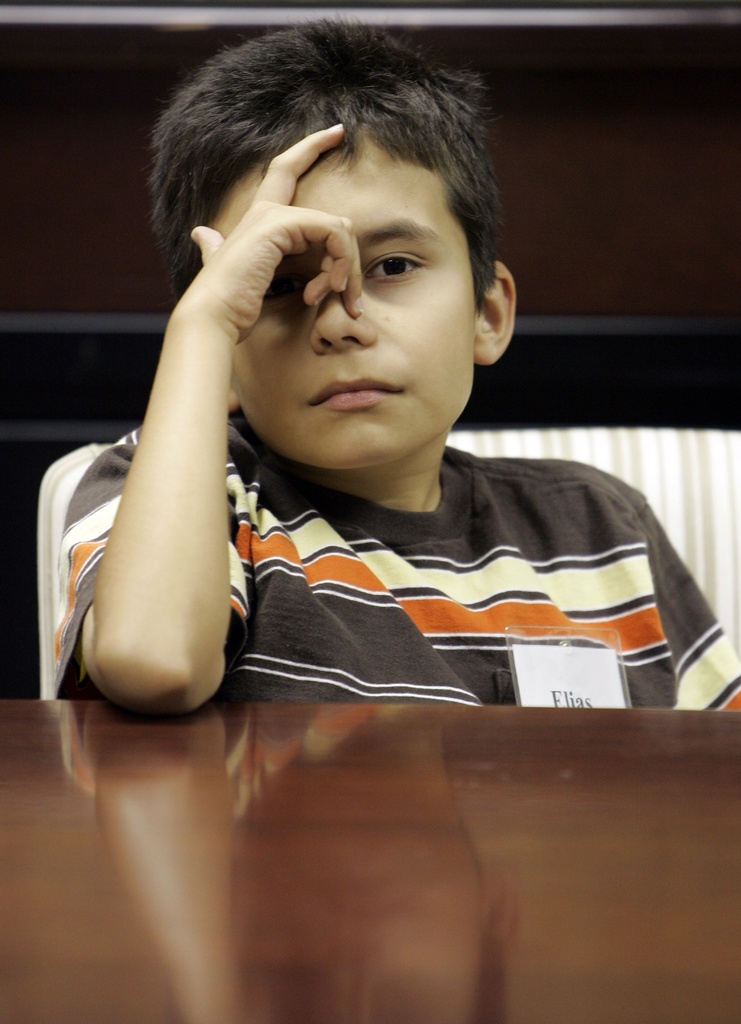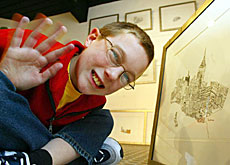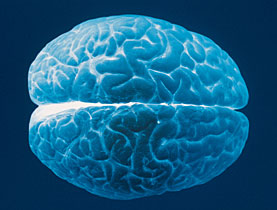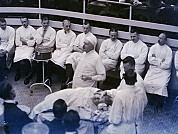Advocates want turnaround in autism treatment

The theories of two of the past century’s most prominent psychiatrists have led to wrongheaded treatment of children with autism, advocates have charged.
Autism organisations in Switzerland say they face a lopsided battle against the tendency to classify the condition as a psychiatric disease; something prevalent in western Switzerland and France.
They point the finger at psychoanalytic theories of thinkers like Austrian-born child psychologist Bruno Bettelheim and of Sigmund Freud, who for a long time claimed mothers were responsible for how their children acted.
“The Anglo-Saxon and Nordic countries have quickly recognised the disease, and treated it consistently and precisely. They have adapted their institutions.
“Other countries, like Spain or Italy, have not created specialised agencies for autism,” says Annemarie Chavaz, president of Autisme Suisse Romande, a parents’ association in French-speaking Switzerland. The group fights for early detection, better medical understanding and appropriate care.
And Switzerland, paradoxically, despite its status as a pioneer of care for the disabled, has not developed the institutions or education programmes advocates are calling for.
Parent associations, the Federal Institute of Technology in Lausanne (EPFL), and the Swiss Film Archive are marking April 2, declared World Autism Awareness Day by the United Nations in 2007, with awareness-raising events.
“One child in 166 is autistic, and in the case of boys, it’s one in 70,” said Nouchine Hadjikhani, professor at the EPFL’s Brain Mind Institute.
And disorders become more common – increasing by up to 600 per cent over a 15-year period.
Genes and environment?
“This could be explained by an interaction between genes and a poor environment (pollution),” said the neuroscientist. She believes deeply engrained practices are responsible for how doctors approach treatment.
“Some psychiatrists are dinosaurs and defend their territory. It is a mistake because they will always have a role to play, but a different role. Because it is known that autistics are very anxious and suffer from social rejection, the psychiatrists can help them.”
Faced with what is taken as “simple” behavioural problems, parents and/or children are sent to a psychiatrist. “If it is not clear, there is a tendency to say that the child is not developing properly because of relationship problems, which makes the parents feel guilty,” explains Hadjikhani.
Cultural differences also affect care, says Chavez. “The Anglo-Saxon and Nordic countries have quickly recognised the disease and treated it consistently and precisely. They have adapted their institutions. Other countries, like Spain or Italy, have not created specialised agencies for autism.
“When you have a child with autism, we discover that we have a different child, who grows up outside of what is known, for which there is no reference. We do not know why he or she is like that, you don’t know what to do and we’re lost. In short, an odyssey lasting many years begins,” says Chavaz.
In Switzerland, it takes on average seven years to diagnose autism, during which time children are often out of school and treated inappropriately.
“The diagnosis often comes as a kind of liberation for the parents because they can finally put a name to the differences [exhibited by the child],” Chavaz adds.
“Associated disorders or disabilities are screened quite quickly, but mild cases of autism are very difficult to diagnose. Paediatricians are also not well informed about it.”
Not enough educators
“There are not enough educators specifically trained and informed, and it is very difficult to find teachers for them,” Chavez said. “Our association, which organised the training itself, must make use of foreign trainers.”
In adulthood, things become more complicated. The association found that grown-ups with autism, particularly in canton Vaud, often lived in “indecent” conditions: idle, medicated and confined. Those not under the care of their parents reported feeling helpless.
After years of wrangling with the canton, the health authorities appear ready to take action. “A proposal that the Vaud government has pledged to enforce has been drafted and submitted to us,” said Chavez.
Five or six young people with autism who had previously received psychiatric care will begin therapy with a specialised agency. “With the appropriate educational methods and a dignified life, we will see these young people reborn,” said Chavez.
Faced with the pain of her patients, Hadjikhani is anxious to “get their messages across”.
“Autistic people affect me because they are whole and they cannot lie. At the same time, they suffer because often they are treated as mentally disabled. It’s just our social rituals they do not understand.”
Isabelle Eichenberger, swissinfo.ch (Adapted from French by Dale Bechtel)
Autism is a brain disorder with biological and genetic origin, which develops during the first three years of life. It seriously impairs communication, learning and adapting to daily life.
It is marked by difficulties in social situations, unusual speech patterns and rigid and repetitive behaviour.
In 1992, the syndrome affected one child in a thousand in industrialised countries. That number has increased dramatically. In Switzerland, estimates are that 50,000 people have autism.
Any person with autism, regardless of age, can develop positively, provided adaptations are made.
Autism Switzerland is an umbrella organisation of parents founded in 1975.
The mission of the EPFL’s Brain Mind Institute is to understand the basic principles of how the brain works.
Neuroscientist Nouchine Hadjikhani is the director its social cognitive laboratory.
Her team shared a SFr1.2 million ($1.3 million) prize this year for the establishment of a genetic model for studying obesity, autism and schizophrenia.

In compliance with the JTI standards
More: SWI swissinfo.ch certified by the Journalism Trust Initiative




You can find an overview of ongoing debates with our journalists here. Please join us!
If you want to start a conversation about a topic raised in this article or want to report factual errors, email us at english@swissinfo.ch.